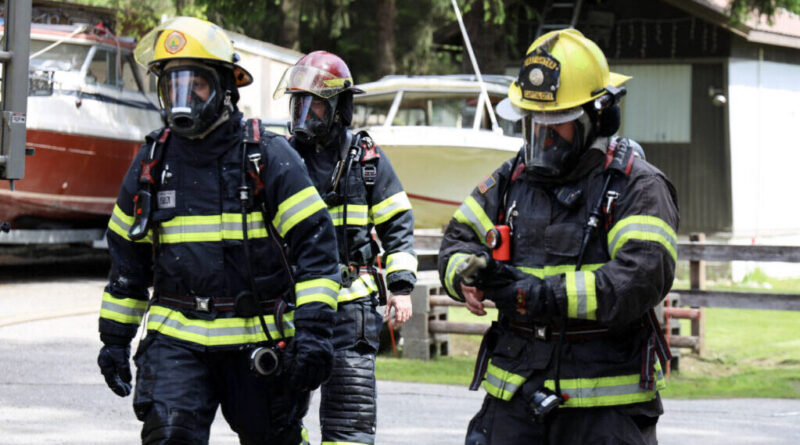Juneau’s firefighters union warns of delays due to ongoing staffing shortage
Juneau’s firefighters union sent out a statement Thursday warning residents that emergency response times may be delayed due to major staffing concerns.
Logan Balstad is the local Juneau Career Firefighters union president. He said this is the most understaffed Capital City Fire Rescue has been in his more than a decade with the department.
“We’re expecting that there will be more calls where you have to wait for a piece of apparatus to respond to your emergency because it’s tied up doing something else,” he said.
This warning comes as the union negotiates wages with the City and Borough of Juneau. According to wage information KTOO received earlier this year before negotiations started, some positions start at $20 per hour. That’s lower than the pay for most similar positions in the Pacific Northwest.
For years, Juneau firefighters have been working increasing hours — often mandatory overtime — to accommodate demand. That’s on top of 56-hour work weeks.
Earlier this year, union members said the lack of competitive pay means firefighters leave as the department struggles to hire replacements. Currently, the department said there are six vacancies, two injured responders, and one staff member on military leave.
“When we work overtime, we’re working 48 hour shifts,” Balstad said. “And when you start doing that repeatedly – doing 48 hours on, 24 hours off, 48 hours on – that can be really hard on the responders and their families, and you know, it’s detrimental in the long run.”
Balstad said the emergency call volume always surges in the summer. Juneau has three ambulances, but the department only has enough staff to operate two. If the department was staffed to ideal levels, they would be able to operate all three during the summer cruise rush.
He said delays mean that medical emergencies lose precious time.
“If we have a cardiac arrest, every minute you go without CPR your chances of return of circulation, of living through this experience, diminishes about 10% and I think we’re about nine minutes on average for our CPR response time,” he said. “So we’re really hoping that members of the public are out there doing good CPR.”
Balstad said it helps if residents know CPR and how to identify the signs of a heart attack or stroke when ambulances are delayed.
In 2024, the department also responded to 18 structure fires. But none of their responses had enough staff to meet the National Fire Protection Association’s standard for minimum number of staff responding.
Correction: An earlier version of this story misstated the number of ambulances in Juneau.

